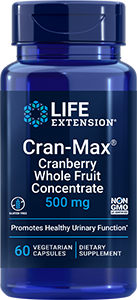 | June 10, 2008 | | | | The June 9, 2008 issue of the American Medical Association journal Archives of Internal Medicine published the finding of Harvard researchers that men who have deficient vitamin D levels have a greater risk of myocardial infarction (heart attack) than men whose blood levels of the vitamin are sufficient. For the current study, Edward Giovannucci, MD of Harvard School of Public Health and his associates reviewed data from men aged 40 to 75 who participated in the Health Professionals Follow-up Study, a prospective cohort investigation designed to evaluate associations between chronic disease incidence and diet among male health care professionals. Blood samples collected from 1993 to 1995 were analyzed for plasma 25-hydroxyvitamin D (25-OHD), lipoprotein and triglyceride levels, and diet and lifestyle factors were ascertained though the use of questionnaires. Nine hundred participants without heart disease were matched for age, smoking status, and time of blood collection with 454 men aged 40 to 75 who had fatal coronary heart disease or non-fatal heart attack diagnosed between the time of blood sample collection through January, 2004. Adjusted analysis of the data found a 2.42 times greater risk of heart attack among subjects with plasma vitamin D levels of 15 nanograms per milliliter or less compared with those whose levels were sufficient at 30 nanograms per milliliter or higher. Even those whose vitamin D levels were intermediate had a 43 to 60 percent greater risk of heart attack compared to men with sufficient levels. Adjustment for a number of factors, such as family history of heart attack, failed to significantly reduce the association. Men with low levels of vitamin D were more likely to live in northern states, and less likely to be white or to use a multivitamin supplement, among other characteristics revealed by the analysis. In their commentary, the authors cite vitamin D’s effect on smooth muscle cell proliferation, inflammation, vascular calcification, and blood pressure via the renin-angiotensin system as possible protective mechanisms against myocardial infarction. Other potential mechanisms include protection against type 2 diabetes, inflammation, and seasonal respiratory tract infections (especially influenza), all of which can impact cardiovascular disease mortality. “These results further support an important role for vitamin D in myocardial infarction risk,” the authors write. “If this association is causal, which remains to be established, the amount of vitamin D required for optimal benefit may be much higher than would be provided by current recommendations (200-600 IU per day), especially in those with minimal sun exposure. Thus, the present findings add further support that the current dietary requirements of vitamin D need to be increased to have an effect on circulating 25(OH)D levels substantially large enough for potential health benefits.” | |  |  | | People who have risk factors for atherosclerosis should take measures to modify them. The ideal nutritional approach to atherosclerosis takes into consideration all existing risk factors and attempts to modify each one. The following nutrients have been shown to improve endothelial function and reduce the damage caused by oxidized LDL, slowing the progression of atherosclerosis: In addition, bioidentical hormone therapy may be recommended, depending on blood testing results. | Life Extension Vacations Take a vacation and come back slimmer, fitter and healthier!
A vacation at a destination spa can either jump start your fitness, wellness and skin care program, or enhance the one to which you already adhere. A spa retreat can help you to improve fitness level, unwind, improve eating habits, detoxify, commune with nature, learn about nutrition, regain inner balance, manage weight, learn healthy cooking, have fun, manage stress, meet other health conscience people, and much more. At Life Extension Vacations, our goal is to immerse you in the ultimate spa experience where the focus is entirely on you. Contact us today at 1-800-791-4457 to help you choose a destination that suits you best. Life Extension Vacations (Operated by Caribbean Islands Travel) Phone: 1-800-791-4457 Email: reservations@levacations.com Office operation hours: Mon-Fri 8:30 am to 6:00 pm. | |  |   | | Glucosamine stimulates the manufacture of glycosaminoglycans, important components of the cartilage needed for healthy joints. Aging people seem to lose their ability to produce a sufficient amount of glucosamine, and there are no food sources available. Commercial sources of glucosamine are from the exoskeleton of certain shellfish and are available as glucosamine sulfate, glucosamine hydrochloride, and N-acetyl-glucosamine. The sulfated form may most effectively incorporate sulfur into the cartilage. Glycosaminoglycans and glycoproteins allow cells in tissues to hold together. They are necessary for the construction and maintenance of virtually all connective tissues and lubricating fluids in the body. Chondroitin sulfates provide the structural components of joint cartilage and facilitate the entry of glucosamine into joints. Chondroitin sulfates also inhibit free radical enzymes. Like glucosamine, chondroitin sulfate attracts water into the cartilage matrix and helps to stimulate the production of cartilage. | | |   | | Cranberries have been known for decades to promote a healthy urinary tract. Clinical research demonstrates that cranberries’ proanthocyanidins are powerful antioxidants that can reduce oxidative stress. Each Life Extension Cran-Max® capsule contains 500 mg of cranberry concentrate to promote urinary tract health. Each capsule of Cran-Max® contains powerful OPCs, organic acids, and antioxidants, providing the same benefits as drinking cranberry juice cocktail, but without the calories. | | | |  | | Life Extension Update | | What's Hot | | Life Extension magazine | |

